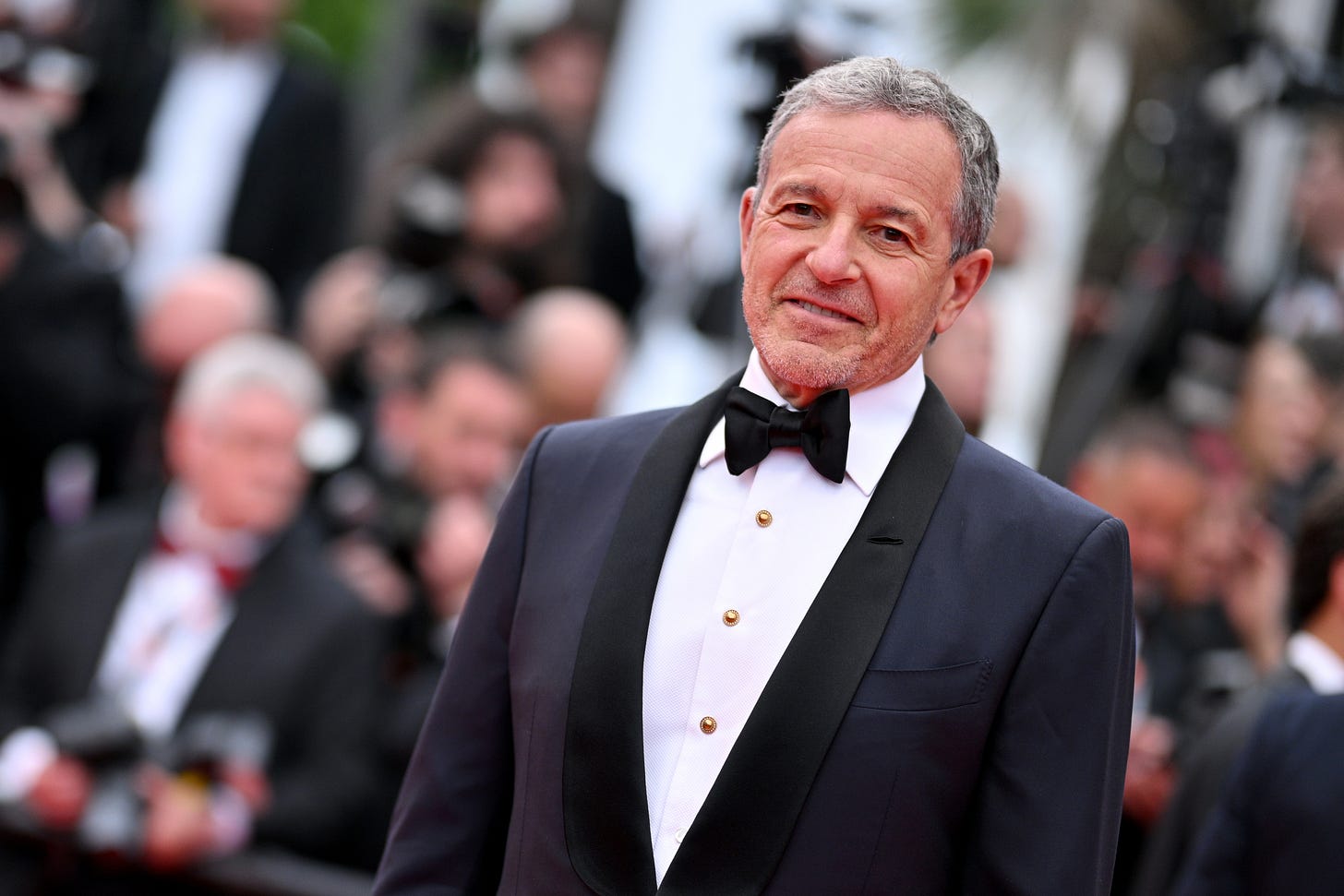Bob Iger and ESPN's Gambling Hail Mary
On when the old make a play for the future
I once met a guy who worked at LinkedIn, pretty high up and fairly experienced. I got to asking about their business and he could hardly contain his glee over how lucrative it all was. Perhaps this is obvious to a lot of you, but I naively assumed that the majority of LinkedIn’s money comes from that fee one pays to be a part of the premier corporate networking site. Instead, most of the $13.8 billion LinkedIn reaped in 2022 comes from business-to-business advertising and a category they simply call “other.”
As you might have known or guessed, LinkedIn’s growth engine isn’t its subscriber base, whose numbers have stabilized a bit in recent years. Instead, the real profit is in trading off its users’ data. LinkedIn, drab as it is, has some of the most valuable data around and they can package it in novel ways. For example, there are corporations out there that want to go deeper than what they can find with a premium account, specifically with an interest in their competitors’ movements. Such “competitive intelligence” can fetch a high price.
The point here isn’t to go down the LinkedIn rabbit hole. I don’t know how its subsidiary status under Microsoft functions and I don’t know why it suffered recent layoffs. The point is to say that this guy I met, a veteran employee, joined LinkedIn at a time when this user-data-based business model was simply inconceivable. It’s just something that opened up after the company gained a unique position and they’ve parlayed it to great riches. A lot of business stories are like that, given how dynamic and unpredictable life is. You conquer a territory, acquire a keep, and the fates/tech determine its future value.
It’s with that in mind that I view ESPN’s $2 billion deal with Penn Entertainment. The Worldwide Leader’s marriage to the gambling company and intent to build an ESPN betting app have made waves in the sports business space. There’s the storyline of Penn escaping its prior arrangement with Barstool Sports, and also the beleaguered Bob Iger’s decision to go all-in on gambling. Previously, the now exhausted Disney CEO had resisted sports gambling, similar to how Don Corleone had feared what selling drugs might do to the mafia. Yes, ESPN had accepted marketing deals from DraftKings and Caesars (soon to end), but that wasn’t the same as pushing the stuff directly. In 2018, Iger said:
I do think that there’s plenty of room, and ESPN has done some of this already and they may do more to provide information in coverage of sports…But getting into the business of gambling, I rather doubt it.
Now, in partnership with Penn, you’ll be able to bet games via an ESPN Bet app. Family-friendly Disney has gotten so desperate that it’s decided to enter the digital casino business.
And what’s the reaction from people within the sports industry? Mostly “too little, too late.” That $2 billion looks like a big number, but it’s spread out over 10 years. And then there’s this issue, quoting Sportico:
ESPN will get $150 million cash per year under the deal, but it will also have to terminate lucrative annual deals with DraftKings and Caesars worth roughly half as much.
The general feeling from anyone who’s dealt in the sports gambling ad revenue space is that ESPN missed the boat here. Had it done a similar deal in 2019 or 2020, the money would have been astronomical. There was a gold rush atmosphere in those days, as so many states were dropping gambling restrictions and betting companies were overspending on deals like startups swinging for a monopoly. Now, the party’s over and the market has stabilized. Penn’s relationship with Barstool not working out is just one more data point to indicate that there’s less meat on this bone than many had once assumed. Disney could have reaped so much more from this deal four years ago, but four years ago Disney wasn’t desperate enough to effectively back a digital casino.
So if it’s not for that much money, and the deal represents a break with established company values, is the move then purely a reflection of financial need? Yes and no, I think.
The move reflects Bob Iger’s despair, but I wouldn’t say it’s simply about trying to die a little slower. Instead, I’d view it as something of a Hail Mary. ESPN’s tethered to the shrinking cable bundle and needs some chance at growth somewhere. You get that only by developing new products and/or partners. You get it by conquering a new keep and seeing what you might, yes, parlay.
When I talk to people in the sports business space about this deal, they frame it as one that pleases investors because it represents possibilities. ESPN, even in its currently enervated state, has far more reach than Barstool has. The ESPN Bet app might just become the financial equivalent of how LinkedIn’s future was determined by data mining. But I see at least one key distinction between a company like LinkedIn and Disney, and it informs my pessimism on such an arrangement. No, it’s not about the conflicts of interest with sports journalism and the sports leagues themselves. No, it’s not the moral risk of spreading sports gambling far and wide, though I do think that’s a potentially huge social problem. Instead, as a strictly business matter, I believe the issue is generational.
Corporate Gerontocracy vs. Tech Young Turks


